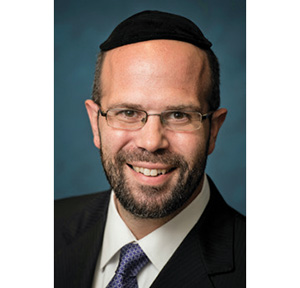
Do you or someone you know suffer from mental illness? If you answered yes, you are correct. If you answered no, guess again. Tens of millions of Americans suffer from a mental disorder and, just as with cancer or diabetes, the Orthodox Jewish community carries no immunity. Studies show that the incidence of mental illness within our community mirrors that of the general population. While the management and treatment of mental illness varies from person to person and depends upon the nature and intensity of the disorder, we are all directly connected to individuals with mental illness whether we realize it or not.
Unfortunately, unlike most physiological disorders, those who struggle with mental health disorders are forced to confront a separate set of challenges. Although not a symptom per se, the social stigma that often accompanies mental illness imposes additional pain and hardship upon sufferers and their families. The consequences of this stigma, albeit unintended, are numerous and far-reaching. In addition to the shame and isolation experienced by individuals and their families, mental illness’ powerful stigma can often obstruct one’s path toward social acceptance, gainful employment and fair consideration for long-term relationships. As if these social barriers were not painful enough, this stigmatization often compromises treatment and hinders recovery. Sadly, individuals are less likely to seek the help they need or commit to a prescribed treatment plan if they perceive that these measures will cause them to be further stigmatized.
It is quite unfortunate, yet deeply ironic, that members of the Orthodox Jewish community are so susceptible to the harmful effects of stigmatization. As a community, we take great pride, as we rightfully should, in our collective ability to provide resources, support and services to individuals in need and distress. We value charity and kindness, in all of its forms, and we are particularly attentive to the needs of those who are most vulnerable and disadvantaged. It is therefore profoundly disappointing that we have, all too often, tolerated and at times even enabled the proliferation of this stigma by failing to truly understand mental health disorders and embrace those who struggle with mental illness and their families.
To a large extent, the pervasive stigmatization of mental illness has been generated and sustained by the widespread belief and acceptance of a host of myths and misconceptions. While there are too many to list them all, what follows is a sample of myths that are all too common in our community. Frequently, individuals who suffer from mental illness are mischaracterized as unmotivated, moody, or needy of attention. Rather than objectively acknowledge the impact of an involuntary chemical imbalance upon one’s brain, we are often misguided in our assessments and conclusions due to our prejudice and blind acceptance of false or misleading information. Mental illness is often perceived as a mark of personal weakness or excessive sensitivity. In this regard, the Orthodox Jewish community is particularly at risk because we place great value upon personal effort and individual achievement. When we choose to interpret specific patterns of behavior as a departure from those sets of values, we are inclined to become harshly judgmental. Finally, many fail to appreciate how truly taxing and debilitating mental illness (which, in many cases, is chronic) can be upon individuals and their families. For example, at times we wonder why one who is suffering from depression won’t simply “snap out of it.” The fact is, however, that most mental disorders, like any other illness, cannot be conquered by willpower alone. Suggesting that someone with a mental illness should just “get over it” would be no different than suggesting to someone with a broken leg to “pull yourself together and just walk normally.”
Successfully combating the stigmatization of mental illness is much easier said than done. Over the past number of years we have witnessed an increase in community funding and programming aimed at raising awareness and sensitivity toward individuals with mental health disorders and their families. It has been profoundly reassuring and genuinely heartwarming to witness the continued willingness of individuals, on both sides of the discussion, to share their personal experiences in an effort to inspire greater awareness and sensitivity. By doing so they inspire and encourage those who struggle with mental illness and their families to come forward and receive the communal support they deserve and the assistance they need. As significant as these developments are, it is clear that to effectively reduce the level of stigma that exists in our community, a systematic and sustained effort is needed. An occasional Shabbos morning drasha, an inspiring film or a community-wide symposium are all great steps forward, but to achieve true and lasting progress an informed, ongoing and relentless communal campaign is what is ultimately needed.
Please join me this coming Sunday, May 5, at 9 a.m. at the special Mental Health and Addiction Symposium hosted by Yeshivat He’Atid. I am confident that all participants will walk away more informed and inspired. I am exceedingly proud that once again our community is leading this critical discussion, raising awareness and sensitivity, seeking to eliminate the pervasive and painful stigma from our midst.
By Rabbi Larry Rothwachs













